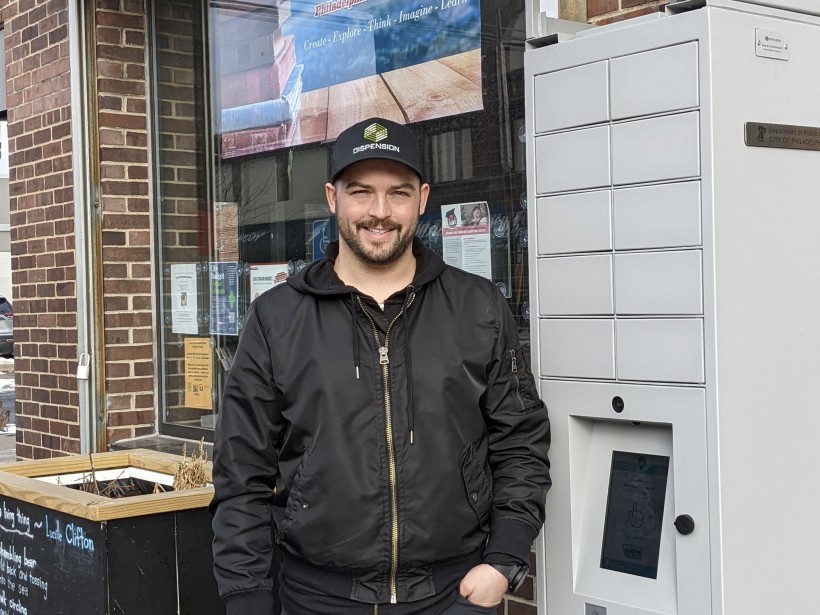Dartmouth’s Dispension Industries, which makes smart kiosks for dispensing pharmaceutical products and controlled substances, has installed two automated Narcan-dispensing kiosks in Philadelphia with plans to add eight more in the coming months.
Dispension’s smart kiosks are analogous to sophisticated vending machines. In Halifax, for example, several smart kiosks are used by the non-profit MySafe Society to dispense prescription opioids to drug users, confirming their identities via touchless palm scanners.
CEO Corey Yantha said in an interview that the Philadelphia kiosks have 22 compartments, each of which contains a Narcan kit. Narcan is the nasal spray equivalent of the injectibable Naloxone overdose treatment drug used in Canada. Unlike the opioid kiosks, those in Philadelphia will not include palm scanners.
“There are no biometrics or access controls on this kiosk,” said Yantha. “It's really an initiative to get as many people access to Narcan as possible.”
The Philadelphia kiosks will also include touchscreens with information about Narcan and how it should be used, and the Narcan kits will include written instructions, latex gloves and a mask. Anyone who wants a kit will be able to access one, either for immediate use or to keep for future emergencies.
Yantha said he also has designs on retail markets for his smart kiosks, including pharmacies, cannabis sales and alcohol retail, all of which Dispension is in talks for. The company offers five variant kiosk designs for different applications.
So far, Dispensions kiosks are used in Vancouver and Victoria, British Columbia; Ottawa and London, Ontario; and Halifax and Sydney, Nova Scotia, in addition to the Philadelphia rollout.
Dispension employs seven full-time staff and several students, for a team of around 12 people. In the coming months, Yantha plans to hire another three to five people. Some of those new staff will work on-site at Dispension’s Dartmouth facility, where the kiosks are assembled. But others could be remote hires, depending on their qualifications and how Dispension fares in the tight labour market.
Of the manufacturing and assembly process, Yantha said, “We have a couple engineering partners, but other than that, we're doing a lot of it under our roof in Dartmouth.”
The exception, he said, is the fabrication of components, which requires too much physical capital to be feasibly done in-house.
And unusually for a startup, there may not be a funding raise on the horizon for Dispension. Yantha said that, except for a funding round open exclusively to TELUS employees, Dispension has avoided taking on new investors and is paying for its operations mostly with operating revenue.
“The more of the company that we can keep, I guess, the more ownership that we can maintain, the better,” he said.










